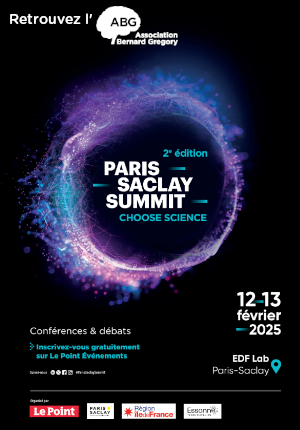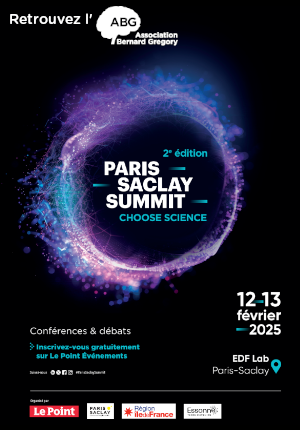SIMULATIONS MÉTÉOROLOGIQUES HECTOMÉTRIQUES POUR LES EXTRÊMES CLIMATIQUES URBAINS // HECTOMETRIC WEATHER SIMULATIONS FOR URBAN CLIMATE EXTREMES
|
ABG-127950
ADUM-59327 |
Thesis topic | |
| 2025-01-16 |
Université de Toulouse
TOULOUSE - France
SIMULATIONS MÉTÉOROLOGIQUES HECTOMÉTRIQUES POUR LES EXTRÊMES CLIMATIQUES URBAINS // HECTOMETRIC WEATHER SIMULATIONS FOR URBAN CLIMATE EXTREMES
- Earth, universe, space sciences
extrêmes météorologiques, orages, climat, ville, jumeaux numériques, simulations numériques
weather extremes, thunderstorms, climate, city, digital twins, numerical simulations
weather extremes, thunderstorms, climate, city, digital twins, numerical simulations
Topic description
Les villes et leurs habitants sont soumis à des événements extrêmes (orages, vagues de chaleur) et des épisodes dangereux de pollution atmosphérique. Le changement climatique en cours modifie la sévérité des événements. Simuler ces événements extrêmes, actuels et futurs, à l'échelle de la ville est essentiel pour aider à guider les décisions de développement urbain fait par les villes. C'est l'un des objectifs du projet UrbanAIR (2025-2028), financé par le programme Horizon Europe de l'Union Européenne. Ce projet regroupe 19 partenaires internationaux issus de l'industrie et du monde universitaire (VITO, Barcelona Supercomputing Center, Delft University of Technology, KNMI, Imperial College London, Université Toulouse III, Météo France, University Freiburg, Technical university Ilmenau, NORCE, Bern FachHochschule, Leibniz University Hannover, Siemens, ARUP, UKRI, Cerfacs, Resilient-Cities Network, Future Needs and SMHI). Treize doctorants et trois post-doctorants y participeront, ainsi que de nombreux scientifiques et universitaires de diverses disciplines. Grâce à des méthodes de travail transdisciplinaires, UrbanAIR mettra en relation les citoyens avec des scientifiques et des acteurs industriels et gouvernementaux afin de cocréer des solutions pour adapter et atténuer la chaleur urbaine et la pollution de l'air.
------------------------------------------------------------------------------------------------------------------------------------------------------------------------
------------------------------------------------------------------------------------------------------------------------------------------------------------------------
Cities and their inhabitants are subject to extreme weather (storms, heat waves) and hazardous air pollution episodes. Ongoing climate change is altering the severity of these extreme events. Simulating these current and future extreme events on a city scale is essential to help guide urban development decisions. This is one of the objectives of the UrbanAIR project (2025-2028) funded by the EU Horizon Europe funding program. It involves 19 international partners across industry and academia (VITO, Barcelona Supercomputing Center, Delft University of Technology, KNMI, Imperial College London, Université Toulouse III, Météo France, University Freiburg, Technical university Ilmenau, NORCE, Bern FachHochschule, Leibniz University Hannover, Siemens, ARUP, UKRI, Cerfacs, Resilient-Cities Network, Future Needs and SMHI). It will involve 13 PhD candidates and 3 post-docs and will involve many scientists and scholars in a range of disciplines. In transdisciplinary ways of working, UrbanAIR will connect citizens with scientists and industrial and governmental stakeholders to co-create solutions for adapting and mitigating urban heat and air pollution.
------------------------------------------------------------------------------------------------------------------------------------------------------------------------
------------------------------------------------------------------------------------------------------------------------------------------------------------------------
Début de la thèse : 01/09/2025
WEB : https://www.urbanair-project.eu/
------------------------------------------------------------------------------------------------------------------------------------------------------------------------
------------------------------------------------------------------------------------------------------------------------------------------------------------------------
Cities and their inhabitants are subject to extreme weather (storms, heat waves) and hazardous air pollution episodes. Ongoing climate change is altering the severity of these extreme events. Simulating these current and future extreme events on a city scale is essential to help guide urban development decisions. This is one of the objectives of the UrbanAIR project (2025-2028) funded by the EU Horizon Europe funding program. It involves 19 international partners across industry and academia (VITO, Barcelona Supercomputing Center, Delft University of Technology, KNMI, Imperial College London, Université Toulouse III, Météo France, University Freiburg, Technical university Ilmenau, NORCE, Bern FachHochschule, Leibniz University Hannover, Siemens, ARUP, UKRI, Cerfacs, Resilient-Cities Network, Future Needs and SMHI). It will involve 13 PhD candidates and 3 post-docs and will involve many scientists and scholars in a range of disciplines. In transdisciplinary ways of working, UrbanAIR will connect citizens with scientists and industrial and governmental stakeholders to co-create solutions for adapting and mitigating urban heat and air pollution.
------------------------------------------------------------------------------------------------------------------------------------------------------------------------
------------------------------------------------------------------------------------------------------------------------------------------------------------------------
Début de la thèse : 01/09/2025
WEB : https://www.urbanair-project.eu/
Funding category
Funding further details
Programmes de l'Union Européenne de financement de la recherche (ERC, ERASMUS)
Presentation of host institution and host laboratory
Université de Toulouse
Institution awarding doctoral degree
Université de Toulouse
Graduate school
173 SDU2E - Sciences de l'Univers, de l'Environnement et de l'Espace
Candidate's profile
Un excellent master en sciences de l'atmosphère ou physique ainsi que des compétences en programmation sont nécessaires. Un intérêt en modélisation météorologique et des connaissances du traitement de grandes quantités de données sont souhaitables. Une forte curiosité intellectuelle et un esprit d'initiative sont appréciés, ainsi qu'une bonne capacité à communiquer à l'oral comme à l'écrit en anglais. Les candidatures féminines sont encouragées.
An excellent masters degree in atmospheric sciences or physics as well as programming skills are mandatory. Interest in weather modeling and analysis of large data amounts are wished. Strong intellectual curiosity and initiative are appreciated, as well as good oral and written communication skills. Female candidates are encouraged to apply.
An excellent masters degree in atmospheric sciences or physics as well as programming skills are mandatory. Interest in weather modeling and analysis of large data amounts are wished. Strong intellectual curiosity and initiative are appreciated, as well as good oral and written communication skills. Female candidates are encouraged to apply.
2025-03-31
Apply
Close
Vous avez déjà un compte ?
Nouvel utilisateur ?
More information about ABG?
Get ABG’s monthly newsletters including news, job offers, grants & fellowships and a selection of relevant events…
Discover our members
 CASDEN
CASDEN  ONERA - The French Aerospace Lab
ONERA - The French Aerospace Lab  Institut de Radioprotection et de Sureté Nucléaire - IRSN - Siège
Institut de Radioprotection et de Sureté Nucléaire - IRSN - Siège  SUEZ
SUEZ  Institut Sup'biotech de Paris
Institut Sup'biotech de Paris  ANRT
ANRT  TotalEnergies
TotalEnergies  Laboratoire National de Métrologie et d'Essais - LNE
Laboratoire National de Métrologie et d'Essais - LNE  ADEME
ADEME  PhDOOC
PhDOOC  Groupe AFNOR - Association française de normalisation
Groupe AFNOR - Association française de normalisation  Nokia Bell Labs France
Nokia Bell Labs France  Ifremer
Ifremer  Généthon
Généthon  Tecknowmetrix
Tecknowmetrix  Aérocentre, Pôle d'excellence régional
Aérocentre, Pôle d'excellence régional  MabDesign
MabDesign  CESI
CESI  MabDesign
MabDesign






